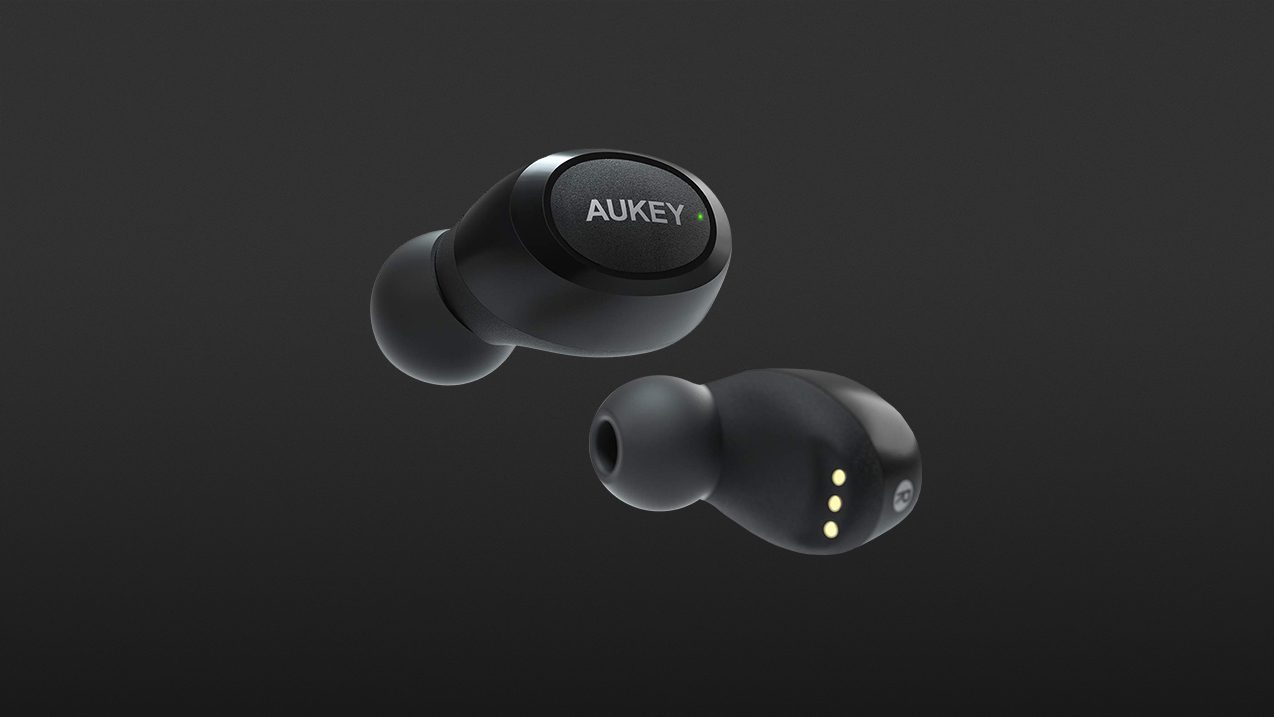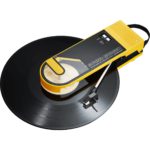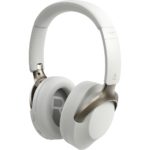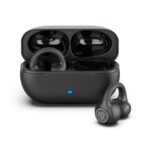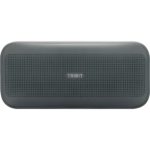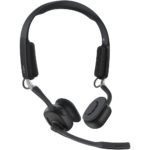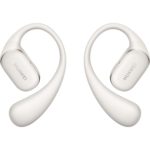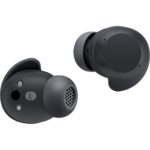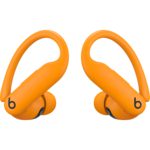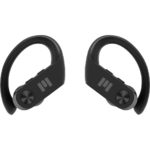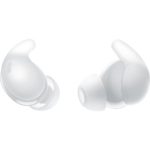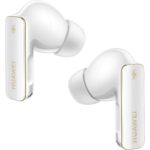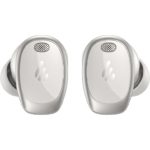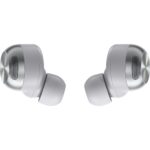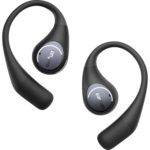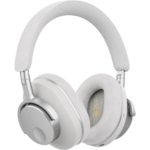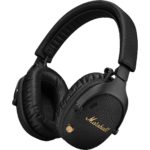The Aukey EP-T16S are neatly crafted, lightweight and sit well in the ears. The touch panels react too sensitively and sometimes somewhat inaccurately. The case, on the other hand, is a handy pocket size and delivers enough power. The sound of the EP-T16S, however, is only moderate and too quiet, with too many trebles facing too little bass and mid-range to develop a real listening pleasure.
The Aukey EP-T16S are labelled as “True Wireless Earbuds” and they certainly belong to that category, shipping at a price just under 50 euros.
First impressions
In-ears, charging case, charging cable, three pairs of tips and a short manual – all packed in a plain, white cardboard box. Open it, take them out, connect them, that’s it. It takes me a little longer to anchor the in-ears in my ears so that they can’t slip out, which is the worst-case scenario with the absence of any cables. But once in place, the music flows via Bluetooth 5.0 through the drivers, which are built into a sweat- and splash-proof housing (IPX5). This has an extremely sensitive touch panel on the back, which reacts very quickly – unfortunately too quickly – to any touch. But more about this later.
Sound
The sound of the Aukey EP-T16S is unfortunately quite flat and very quiet, with the highs a bit too high, the mid-range too subtle and the basses not really what you want. This doesn’t get any better, even when I turn up the volume very loudly. Podcasts have some unpleasant sibilants in the speech and for more complex music, the EP-T16S lacks foundation and depth, which can be improved with an EQ but not optimised. Dynamic bass and high-quality treble, mentioned in the promotion material, are somehow not as advertised. And the microphones used for calls are not very convincing either. Noisy and dull, the sound reaches the other person, who then complains of poor intelligibility.
Operation
The touch panel on the left and right make for a pretty well-made control concept, where touching left and right once stops the music or accepts or ends the call, double-tab left jumps a piece of music back, double-tab right jumps a piece of music forward. A longer touch on the left decreases the volume, on the right increases it. However, as already mentioned, the touch panels are so sensitive that even the slightest touch – for example, if you want to press the in-ear or twist it a bit – leads to a reaction and often not to the desired one. You have to concentrate a lot – or practice a lot – to have this control under control. On my bike, I always miss a beat, stop the music where I want to skip, or fail to get the right response when I just want to lower the volume just a little bit. This sort of operation runs smoother with other touch-controlled in-ears.
Case
The charging case is a convenient size, displaying its own charging status with four LEDs when magnetically inserting the in-ears. The earbuds provide up to 3 hours of output on a single charge, and this can be extended to up to nine hours using the charging case – all good qualities.
Technical specifications
- Ear couplingIn-ear
- Typeclosed
- Transducer principledynamic
- Frequency response (headphones)20 - 20.000 Hz
- Impedance16 ohms
- Sound pressure level (SPL)88 dB ±3 dB
- Weight without cable2x 4,5 g
What's in the box
- 3 pairs of eartips (S/M/L)
- USB charging cable
- Charging case
Special features
- available in black and white
- BT codecs: SBC, AAC
- BT version: 5.0
- BT profiles: A2DP, AVRCP, HSP, HFP


